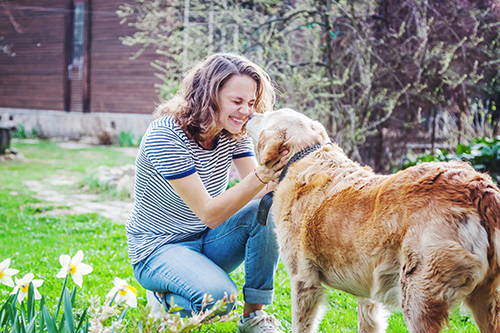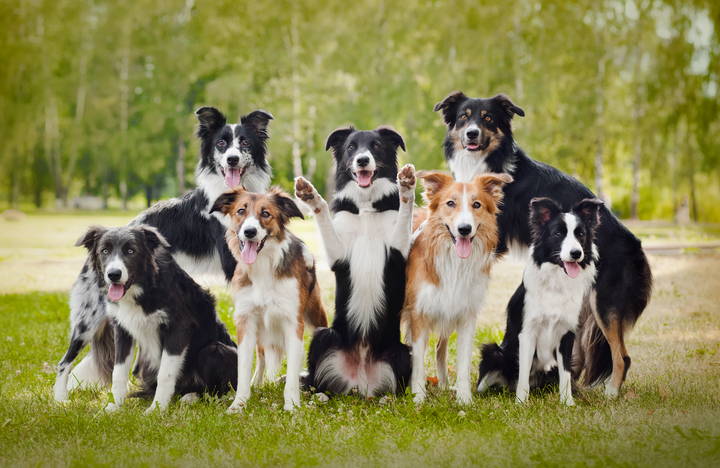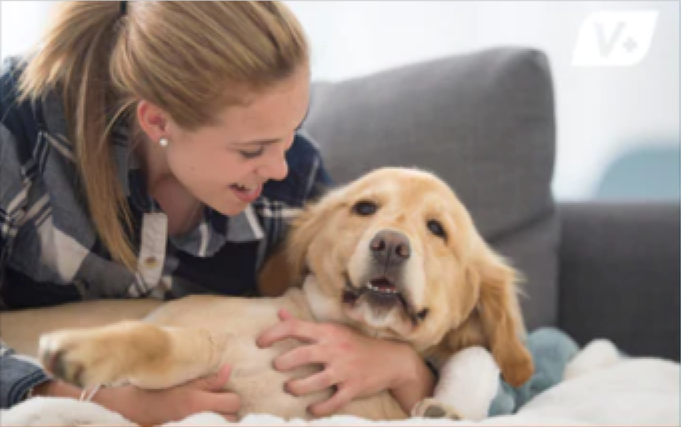The warmer months of spring and summer bring a lot of fun activities for us humans, but they can also come with a lot of stressors for our pets. While you won’t always be able to control your environment, you can learn how to help reduce and manage feelings of stress in your pet.
Find out what can trigger stress in your pet and learn how to help keep them calm so you both can relax and enjoy yourselves!
What Triggers Stress in Pets During the Summer Months?

Fireworks & loud noises
While not specific to just warmer months, summer is prime time for loud noises that can stress out both dogs and cats. Noises like fireworks, landscapers, and thunderstorms can be terrifying to your pets; they won’t understand what’s going on and will look to you for support. Try these tips for keeping your pet calm if they get stressed and anxious from loud noises:
- Hang out with your pet in a basement (if possible)
- Have background noise (TV or soft music)
- Don't try to force them to endure
Pet Health Tip from Vetnique
More pets go missing on the 4th and 5th of July than any other time of year. Make sure your pets are microchipped in case they escape for a quick reunion. Learn more on how to keep them calm specifically around Fourth of July Fireworks.
Summer travel with pets
- Food & treats
- Health & veterinarian information
- Bed
- A couple of favorite toys
- Up to date contact information
- Emergency contact information (in case you can’t be reached)
- Vaccination records (Including Kennel Cough)
Hosting parties or large gatherings
Pet Health Tip from Vetnique
If you’re leaving the house, try leaving on music or tv. A lot of pets will find the background noise and the visuals entertaining. This can also help minimize any noises that might stress out your pet while you’re gone.
Leaving your pet to go back to the office after working from home
General sensory overload
How to Alleviate Pet Stress During Summer
Keep pets active

Distract pets with chew toys & games
- Tug of war
- Interactive/puzzle toys
- Fetch
- “Hide and Seek”
Attention, please!
Make your pet comfortable & create a safe space
Supplements for stressed pets
Prescription medications
Empower Your Pet With Calming Support
Join the Pack!

Sign up for exclusive deals, curated pet tips from veterinarians, and product launches!
Pet Parents are Also Reading...
Nov, 2021
Related Articles
Meet Our Founder & CEO
Putting the Vet in Vetnique
James Bascharon, DVM
It all started with a veterinarian who had a simple question: “Is that all we can do for this pet?”
Dr. James Bascharon set out on a mission ten years ago to create a pet supplement company unlike any other. After realizing there was no solution for pets with anal gland issues, Dr. Bascharon set out on a research mission to create a supplement specifically for this problem. After years of research, multiple patents, and collaboration with top industry professionals, Glandex® is now a veterinary renowned solution for pets with anal gland issues. This journey proved that with the correct nutritional supplementation, pets could lead healthier and happier lives. Vetnique® continues with an innovative veterinary mindset and approach to help make a long-lasting impact on the health and well-being of millions of pets.

Sign up for exclusive deals, curated pet tips from veterinarians, and product launches!
















